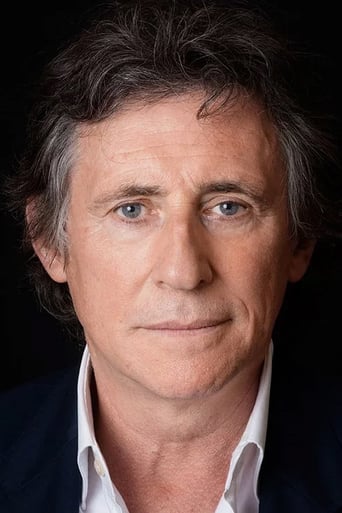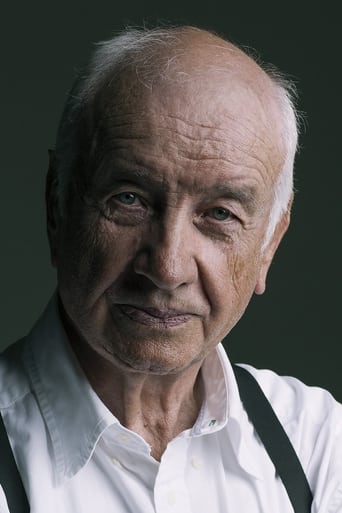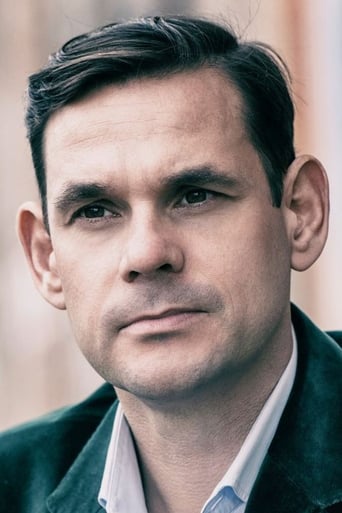Robert J. Maxwell
Mira Sorvino is a British/American journalist who insists on reporting from Leningrade. The city is under siege by the Germans and bombed daily. Sorvino is wounded and taken in by a Russian family, whose miseries she shares thereafter. The isolation of Leningrade lasts for years and one and a half million people die in the city, either from the bombardment or from starvation.I don't know why it's not a better, a more gripping movie than it is. It's dramatic material. Everyone's life is as tenuous as those of the families in Anne Frank's attic. The performances are at least adequate but the plot focuses on events that should be peripheral to the main story.I'll give an example. It develops, half-way through the film, that Mira Sorvino may be a stranded journalist (and audience proxy) but she is also the daughter of a White Russian general and was born in Russia herself. The White Russians fought the Bolsheviks for control of the state and lost. When the NKVD discovers that the British daughter of an old, exiled, harmless White Russian is at loose in a city where people are carving up live horses and eating dogs, they implement a search for her and it becomes dangerous for Mira Sorvino to leave the shabby, freezing apartment. Does anyone believe that? The director uses enormous close ups of people's face and the photography draws its colors from the ghoulish green end of the palette. It makes the actors look dirty and ugly. In fact, I was startled enough by the signs of aging in the principles that I recognized -- Mira Sorvino, Gabriel Byrne, and Armin Mueller-Stahl -- that it prompted me to run to a mirror for reassurance that the years hadn't caught up with me.Sorvino does okay and handles her British accent acceptably, assuming she wasn't dubbed. And Byrne is just right for the small part of the lover who is lost for good. His face is a mask of tragedy anyway. But Mueller-Stahl as a stern, unfeeling German officer who orders his own nephew to his death? No, no. Armin Mueller-Stahl is somebody's fond uncle, a paragon of resigned humanitarianism. At least this much can be said for the casting. In Europe, at the height of the Cold War, I saw movies that never played in the United States and was able to pick up the kinds of slight nuances in style and appearance that constituted propaganda. Some of the Russian and French films showed smiling, avuncular Soviet officers who wouldn't harm a fly but might be very effective leaders of a Gestalt therapy group, while the Americans in the picture were rich, fat, bumbling, stupid, and spoke with ludicrous accents. Of course, America was using the same techniques in its own movies but the simple devices had always slipped under the radar, taken for granted. No such accusations of propaganda can be made about "Attack on Leningrad." Everybody looks ugly, including the jowly Soviet leaders, one of whom bears a remote resemblance to Uncle Joe. Stalin isn't mentioned but many Russian citizens recognized that they were caught between two dictators. As one observer said at the time, "We preferred the one who spoke Russian."Anyway, what we get to see is the effects of the siege on a diverse group of citizens -- an aristocratic theater star, a crippled kid, a mother who starves herself for her children's sake, a young woman who is a police officer. No mention of cannibalism. There wasn't even a law against it. The 900 people indicted had to be charged with "extreme banditry." But what's really needed is the context of the siege itself, instead of a story beginning in medias res. That might not have been necessary in Russia or in much of Europe, but it is essential for American audiences, many of whom seem to have strong opinions but little knowledge of foreign history. Not because they're dumb but because they have the same level of curiosity as, say, Elvis Presley. The singer was stationed in Germany but rarely got past the PX. Many of us seem to live in a kind of informational gated community. So -- what is Leningrad (or St. Petersburg) to us? What, or who, is Lake Ladoga and why was it important? A poll a few years ago revealed that a substantial number of school children believe that in World War II, Germany and the USSR fought on the same side.It ought to be seen for its education value alone, regardless of its flaws as a piece of art.
Lee Eisenberg
One of the stories of WWII that has always deserved a lot more attention than it has usually gotten is the Siege of Leningrad. The Nazis blockaded the city, cutting it off from the outside world for over two years. Over a million Leningraders perished, mainly due to starvation. Aleksandr Buravsky's "Attack on Leningrad" is set amid this atrocity. It focuses on an English journalist (Mira Sorvino) caught in the city when the Nazis blockade it, although the main focus is her relationships with people in an apartment building as they all struggle to survive.A previous review criticized the movie for concentrating more on the journalist than on the horror that the city experienced. Maybe that's true, but I still thought that it was a good movie. Obviously it can't accurately depict the tragedy that Leningrad suffered, but it does still look at this important part of history. At least that's my interpretation.
nikolobg
If you want to watch it because of the epic war theater - the siege of Leningrad - don't. As a war movie this one is a complete JOKE - from the bad special effects to a director with zero grasp of reality: in one scene 20 Germans are running towards 20 dug in Russians. The Russians counter attack by getting out and running towards the Germans. They shoot once and then they charge, the Germans do the same like a civil war battle and then we have a hand to hand fight of those 40 people?!?!? And that represents the battle at the Leningrad front. You want see more, that's it, that's all, move along to the acting.Acting - 2nd rate. You will see the 2 stars, Gabriel Byrne and Mira Sorvino tired and going trough the mechanics of acting. Good performance from the kids and Olga Sutulova. Ohh, but Wait you say! This is a great drama, an epic in human suffering and endurance, thats why i will watch it! Yeah, but this movie does no justice to the Siege of Leningrad where 1.5 million people lost their lives. It barely scratches the surface of the 872 days of bravery, self sacrifice and complete horror that was the siege. The real problem with the movie is that after watching it i feel angry at an epic story being told to me by amateurs, for that is how it feels at the end. (except the kids and the militia girl)
lagordon64
A highly emotional, deeply moving and beautifully told story of one of the greatest tragedies of the 20th century. It absolutely cannot leave you indifferent. While it depicts horrific events during the siege of Leningrad it manages to keep a shred of hope and faith (in human nature first and foremost) by creating these most humane and touching characters. The acting is incredible, very subtle and no small details are left untouched. The battle scene is so graphic that you find yourself overwhelmed and completely immersed in the utter nightmare and horror of it. All in all it is powerful work that deserves to be seen. Over and over.





